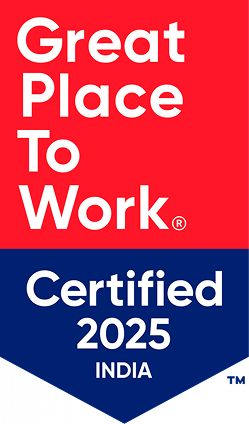
Sustainability in logistics refers to the efforts of logistics companies and other supply chain management stakeholders to reduce their environmental impact and operate in a more sustainable manner. As global trade and e-commerce surge, the logistics sector faces mounting pressure to balance operational efficiency with environmental responsibility. This blog introduces the concept of sustainable logistics, why it matters, and how MatchLog is leading the way.
What is Sustainability in Logistics?
Sustainable logistics-also known as green logistics-means integrating eco-friendly practices into every step of the supply chain, from procurement to delivery. The goal is to minimize the environmental impact of transporting goods while maintaining efficiency and profitability.
Why is Sustainability Needed in Logistics and Shipping?
The logistics and shipping industry is a major contributor to global carbon emissions, primarily through transportation and inefficient resource use. As per Mckinsey data, logistics account for approximately 7% of global GHG emissions.
Scope of Sustainability
-
Environmental Sustainability
This involves minimizing the environmental impact of logistics operations, such as reducing carbon emissions, conserving natural resources, and reducing waste. This is where a platform like MatchLog comes in, which helps businesses not only increase efficiency and profit but also become sustainable. With MatchLog’s container triangulation and container ReUse solutions, businesses can cut empty trips and reduce their carbon footprint significantly.
-
Social Sustainability
Logistics operations are socially responsible, including by promoting fair labour practices, respecting human rights, and supporting the local community.
-
Economic Sustainability
Logistics operations should be economically viable over the long term, including by maximizing efficiency, minimizing costs, and promoting competitiveness. Companies can increase profits by using MatchLog’s innovative solutions to enhance logistics efficiency, cut logistics expenses by 13%-14% and become economically sustainable.
Overall, sustainability in logistics involves a balance between these different scopes, with the goal of creating a sustainable and responsible supply chain that meets the needs of all stakeholders.
The scope of sustainability in logistics
-
Supply Chain Management
Logistics companies should work with their suppliers and partners to reduce the environmental impact of their supply chain, for example by working with suppliers that use sustainable practices or by reducing the distance cargo needs to travel to reach customers. MatchLog’s technology-driven approach sets a new standard for sustainable supply chain management.
-
Transportation
Logistics companies can adopt more sustainable transportation practices, such as using more fuel-efficient vehicles, investing in electric or hybrid vehicles, and Optimising transportation routes to reduce emissions.
-
Warehousing & Distribution
They can adopt more sustainable practices in their warehouses and distribution centers, such as using energy-efficient lighting and equipment, Optimising energy use, and reducing water consumption.
-
Carbon Footprint
Decarbonisation by measuring and reducing their greenhouse gas emissions, investing in renewable energy, and offsetting their emissions through carbon credits or other means. At MatchLog we measure and report emissions for clients, showcasing the carbon savings achieved through container triangulation. Additionally, we collaborate with two agencies to develop standards for measuring and potentially monetizing these carbon credits.
Be a business of the future, and become a part of the change; happening in the logistics industry right now. Collaborate with MatchLog to adopt our innovative and cutting edge technological solutions enabling container ReUse and container triangulation. Connect with us via support@matchlog.delivery or contact us- 1-800-309-9887.

